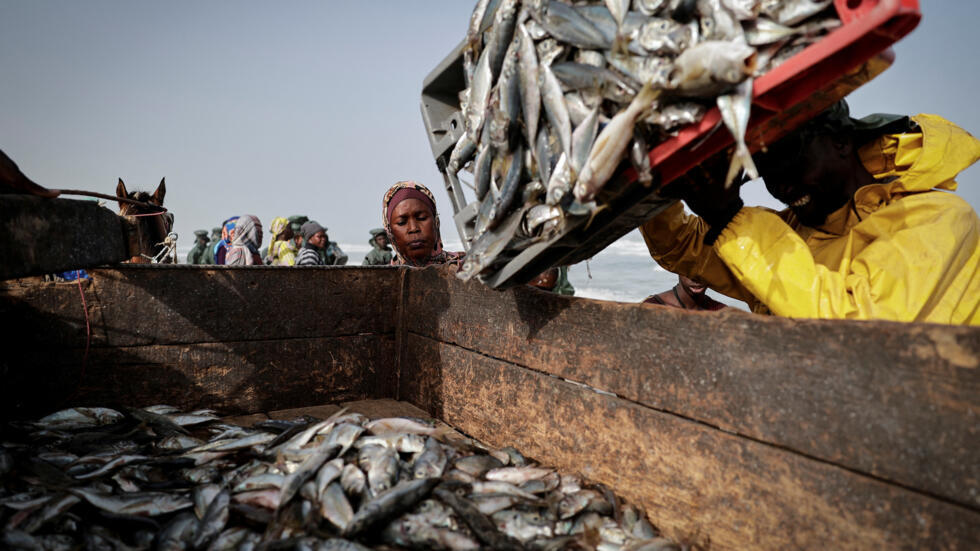Senegal rejects EU’s claims on fishing agreement suspension, vows to protect local fishermen

The Senegalese government has pushed back strongly against the European Union’s announcement to suspend fishing agreements, citing supposed failures in combating illegal fishing.
According to Dakar, it was their decision not to renew the deal to safeguard local fishermen’s interests.
Senegal’s response came from both a political rally and official statements by the Ministry of Fisheries.
Speaking at a political gathering on the outskirts of Dakar ahead of the November 17 legislative elections, Higher Education Minister Abdourahmane Diouf aimed to “set the record straight.”
“Our friends from the European Union held a press conference claiming they decided not to renew the fishing agreements with Senegal.
That is a complete falsehood,” he told supporters.
According to Diouf, Senegal had long made the decision not to extend these agreements, which he described as harmful to the country’s fishermen.
Backing up the stance was Fatou Diouf, Minister of Fisheries, Maritime Infrastructure, and Ports.
She provided detailed clarification, stating, “The agreement ends at midnight on November 17.
From that point on, no European vessels will have the right to fish within our exclusive economic zone.”
Outlining the government’s approach, she added, “Upon assuming office, I called for a comprehensive evaluation of the agreement.
This evaluation is still ongoing.
We cannot consider entering a new fishing agreement without waiting for these results. It would be contradictory.”
The rebuttal comes after the EU delegation in Dakar announced on November 12 that it was halting the agreement, citing “failures” in addressing illegal fishing practices—a claim Senegal firmly denies.
To offer further clarification, the Ministry of Fisheries announced plans for a press conference on November 20, after the elections, to elaborate on Senegal’s position and address lingering questions surrounding the agreement.
The partnership between Senegal and the EU, spanning over four decades, contributed €8.5 million to the Senegalese state budget from 2019 to 2024, with European vessels accounting for less than 1% of total catches in Senegalese waters.
About The Author
dailymailafric
I am an avid African news observer, and an active member of Daily Mail Africa.
I’m Passionate about staying informed on diverse topics across the continent,
I actively contribute to publishing on political, economic and cultural developments in Africa.



